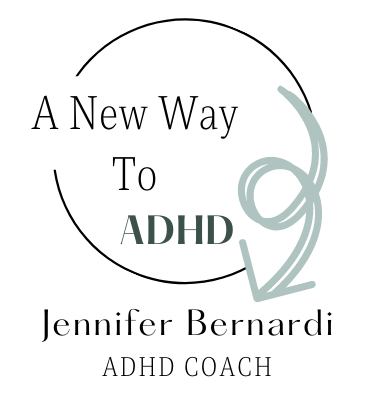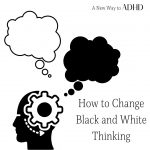
Whether your child has been recently diagnosed with ADHD or it is something you have been dealing with for years, parenting and navigating ADHD can be overwhelming and exhausting. The good news is that you don’t have to be overwhelmed by parenting a child with ADHD. You might be surprised by the five things you can change right now to help manage life with ADHD.
1. Change How You See Your Child
Do you see your child’s ADHD as a problem that needs to be fixed? Do a lot of your sentences start with “If they would just… clean their room, turn in their assignments, think before they do things, etc.”?
A child with ADHD approaches the world differently. The parenting techniques we learn from society, our own childhood, and well-intentioned advice-givers don’t often work for our neurodivergent children. You cannot change who your child is or the way that they think through discipline, lecturing, or coercion.
A person with ADHD has a brain that is wired differently. This means that the way they think and approach things is different than their neurotypical counterparts. Due to this different wiring system, some things will be more challenging for your child; however, this wiring also gives them many incredible strengths.
What if you focus on your child’s strengths instead of their weaknesses? What if you saw their weaknesses as unmet needs or skills? How would things change?
The key is to meet them where they are and teach them the skills they need to be successful, while honoring the unique qualities that make them so special.
2. Change Your Story
When we become parents, we have a lot of old rules and old beliefs that were established in our childhood, from societal expectations and from our own fears and worries.
Before you can work on helping your child, you have to work on yourself.
What old beliefs about parenting are holding you back from being the parent you need to be for your child?
An example from my own life is how frustrated I got when my kids were having a meltdown. Why did I get so mad when they were having a hard time? The problem wasn’t the emotions they were having, but my reaction to those emotions. After exploring this with my coach, I discovered that I was worried that I would be judged by other people. The story that I was telling myself was that others would see me as a bad parent. When I shifted to worrying about what my kids needed at the moment instead of my fear of being judged, I was able to help them more effectively.
3. Change What Matters Most
What matters most to you? Is it good grades, being respectful, or compliance? The first question I ask parents when we begin coaching is, “What do you want most for your child?” The answer is almost always “I want my child to live a happy life.” Parents often go on to say that they want to make sure they will grow up and be able to launch into the world successfully.
When your child looks back on their childhood, do you want them to remember the good times you had together and how you supported them when they were struggling, or your frustration, nagging, and yelling?
If your ultimate goal for your child is that they grow up happy and healthy, then shift your focus from the challenges your child is having and build a solid relationship with your child.
4. Change the Questions You Ask
Kids with ADHD often don’t know why they lied or why they didn’t get those assignments turned in. When we use the word why our kids feel judged and learn to cover up mistakes instead of figuring out how to solve them.
If your child could be doing better, they would. Chances are, they really want to be able to do the right thing, but something is getting in the way. As Dr. Ross Greene says, “They are not giving you a hard time, they are having a hard time?”
When you get curious about what is going on, you can help your child find solutions to their challenges. Instead of saying, Why didn’t you turn in your homework again? Ask your child, “What is getting in the way of you getting your homework in on time?” Another way to approach this might be to say, “I noticed you have some late assignments. Can I help you figure out a plan to get those turned in?”
5. Change Your Expectations
Children with ADHD develop at a different pace than their neurotypical peers. Although they might be physically and cognitively on the same track as children their age, their executive functioning skills can lag by three to five years. The expectations and standards they are held to should match what they are capable of. Your 9-year-old child might be doing math at a sixth-grade level, but has the executive function skills of a six-year-old. Expecting them to independently clean their room or get ready for school without your help just isn’t realistic.
You don’t have to continue to be overwhelmed by your child’s ADHD.
Taking a new approach to parenting is the key to effectively managing your overwhelm and changing the parenting dynamics between you and your child. One-on-one coaching is a great way to learn the tools and strategies that will help you navigate life with ADHD. Click here to learn more about my ADHD Parent Coaching Program so you can begin to overcome the overwhelm of parenting a child with ADHD.



